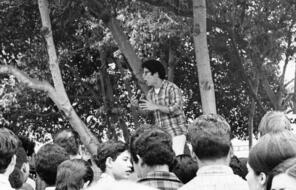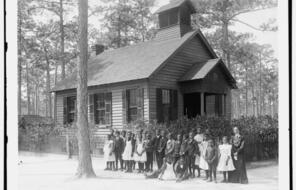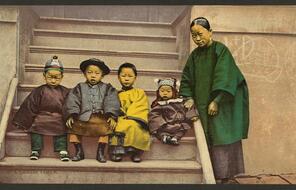Challenging Racist Assumptions
At a Glance
Language
English — USSubject
- Social Studies
- Racism
In 1924, Horace Mann Bond, the director of education at Langston University, reviewed Carl Brigham’s A Study of American Intelligence. His review was also published in Crisis. He wrote:
The manner in which these tests and their results are being regarded should cause serious concern on the part of the Negro Intellectual, for in many cases they have ceased to be scientific attempts to gain accurate information and have degenerated into funds for propaganda and encouragement for prejudice. It should therefore be the aim of every Negro student to be in possession of every detail of the operation, use and origin of these tests, in order that he might better equip himself as an active agent against the insidious propaganda which like its prototypes, seeks to demonstrate that the Negro is intellectually and physically incapable of assuming the dignities, rights and duties which devolve upon him as a member of modern society. . . .
Why should Negroes from Northern states possess larger increments of intelligence than Negroes from Southern states? Mr. Brigham says that this is because the more intelligent have immigrated northward; a very pretty explanation, but not one which can be taken to justify the fact. There is only one obvious explanation; the Negro from the North, because of infinitely superior home, civil, and above all school conditions, has been favored by environment in just as great a degree as his Southern brother has been deprived of the same. . . .
Thus with the list of other “inferiorities” so confidently affirmed by Mr. Brigham and others of his school. Invariably a perusal of those nationalities whom he classes as inferior will be found to have a close correlation existing between the sums of money expended for education and their relatively low standing. . . .
Only recently an investigator working from the University of Texas proclaimed the fact that he found the Negro children possessed but 75 per cent of the average intelligence native to whites. Further investigation revealed the following facts: In that special locality, the whites, with a school population of 10,000, were expending on an average $87 per capita for the education of their children. The Negro children received a per capita of $16; and yet this Texas psychologist believes he has unearthed a brief for Negro inferiority. . . .
No, it is not with Intelligence Tests that we have any quarrel; in many ways they do represent a fundamental advance in the method- ology of the century. It is solely with certain methods of interpreting the results of these tests that we, as scientific investigators, must differ. So long as intelligence tests are administrated, correlated, and tabu- lated solely with the subjective urge subdued, and with a certain degree of common sense as to their interpretation, we can never criticize them.
But so long as any group of men attempts to use these tests as funds of information for the approximation of crude and inaccurate generalizations, so long must we continue to cry “Hold!” To compare the crowded millions of New York’s East Side with the children of some professional family on Morningside Heights indeed involves a great contradiction; and to claim that the results of the tests given to such diverse groups, drawn from such varying strata of the social complex, are in any wise accurate, is to expose a fatuous sense of unfairness and lack of appreciation of the great environmental factors of modern urban life. 1
- 1“Intelligence Tests and Propaganda” by Horace Mann Bond. Crisis, June, 1924 (vol. 28, #23).
How to Cite This Reading
Facing History & Ourselves, "Challenging Racist Assumptions," last updated July 13, 2020.
This reading contains text not authored by Facing History & Ourselves. See footnotes for source information.












